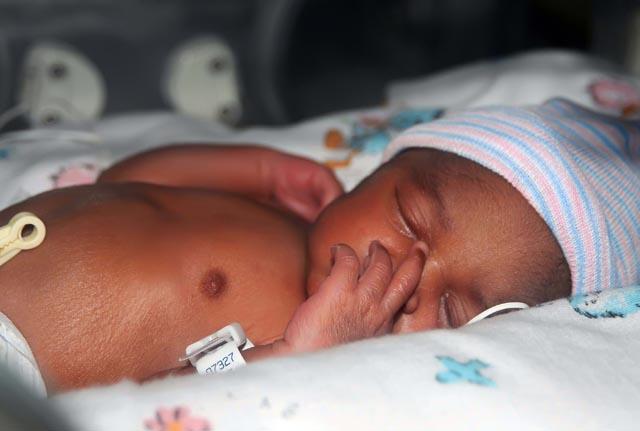You are here
Could there be a cheap blood test to predict a baby’s birth date?
By USA Today (TNS) - Jul 05,2018 - Last updated at Jul 05,2018

Photo courtesy of wordpress.com
Babies, as every mom knows, tend to arrive on their own, often mysterious time schedules, but what if there were a cheap way to predict a baby’s birthday accurately, including the risk of a premature baby?
For thousands of years, pregnant women have wondered about that and now a team of researchers may have hit upon a way to do it.
The journal Science reported in its June issue a promising new study of “non-invasive” ways to monitor foetal development, and predict gestational age and pre-term delivery.
Translation: Cheap blood tests that can show the stage of the baby’s development in the womb, including the risk the baby might arrive before full term.
Ultrasound tests, now a familiar gold-standard procedure during pregnancy, can show a foetus’ development, but they’re expensive so, they are not ideal in poor communities around the world. Also, they do not predict spontaneous preterm birth, a leading cause of infant death.
Counting weeks from one’s last period is the age-old method but it depends on memory and is often imprecise. Inaccurate dating can lead to unnecessary decisions to induce labour or to Caesarean sections, requiring extended postnatal care and increased medical costs.
Under the headline, “Towards more predictable birthdays”, the team of researchers described a pilot study of 31 healthy pregnant women. By measuring certain nucleic acids (cell-free RNA transcripts) in maternal blood, they could predict gestational age with comparable accuracy to an ultrasound but at a “substantially” lower cost.
In a related study of another 38 women, all at elevated risk of delivering preterm, the researchers identified seven nucleic acids that accurately classified women who delivered preterm up to two months in advance of labour.
“These tests hold promise for prenatal care in both the developed and developing worlds, although they require validation in larger, blinded clinical trials,” the researchers reported.
These results are preliminary. If larger clinical trials reproduce them, this kind of blood test could help save babies who would otherwise die because they were born prematurely, the researchers say.
This is no small thing: Some 15 million babies are born prematurely every year worldwide, the researchers say. In the United States, premature birth is the leading cause of neonatal death and complications later in life.
The team of 18 researchers from multiple universities was led by Stephen Quake of Stanford University, a pioneer in genomic diagnostics and in developing new approaches to biological measurement. Among other things, he invented the first non-invasive prenatal blood test for Down syndrome.
Modern medicine and science have come far in understanding the stages of human pregnancy since the days of the ancient Greeks, who nevertheless had quite a bit of knowledge about the different stages of foetal development, according to the researchers.
Although science has developed detailed cellular and molecular portraits of both foetal and placental development, there still are not “molecular tests that reliably predict gestational age for individual pregnancies”.
The appeal of such tests is obvious, especially to pregnant women. Current methods to estimate delivery date generally assume normal development and do not account for premature birth.
Related Articles
LONDON — Scientists in the United States have developed a fluid-filled womb-like bag known as an extra-uterine support device that could tra
Babies born prematurely may benefit from people talking to them while they are still in the hospital's intensive care unit, suggests a new study.
NEW YORK — A new study has found that women who smoke while pregnant, even if they have cut down the number of cigarettes they smoke each da














